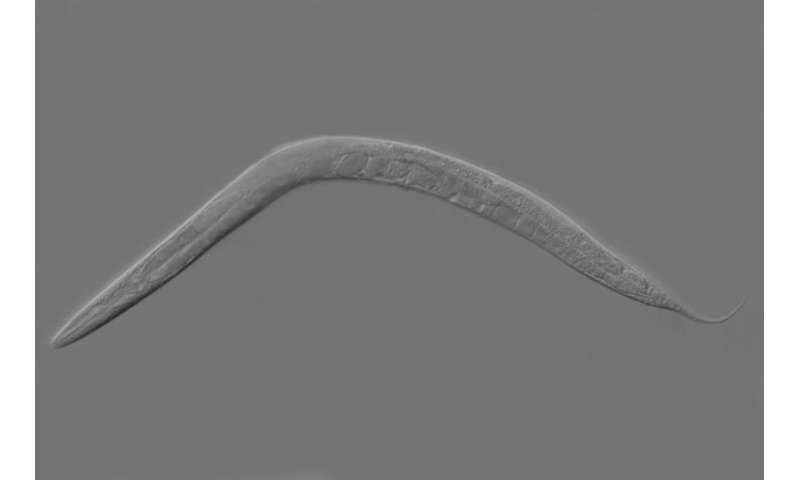Caveolin binding motif in Na/K-ATPase is required for stem cell differentiation, organogenesis in animals
by Science X staff
New findings reveal the importance of the Na/K-ATPase protein in stem cell differentiation and organogenesis, in a study led by scientists at Marshall University that involves the scaffolding function of the Na/K-ATPase.
The research, published today in Science Advances, indicates that a sequence in the Na/K-ATPase, also known as the sodium pump, that is not involved in the ion pumping function of this protein is critical to stem cell differentiation and organogenesis across the animal kingdom.
"The goal of this study was to reveal a novel role of this protein in animal biology and physiology," said first and corresponding author, Xiaoliang Wang, M.D., Ph.D., a postdoctoral research fellow at the Marshall University Joan C. Edwards School of Medicine. "Embryonic development represents one of the most amazing processes of biology. Na/K-ATPase is prevalently expressed in every single cell in our body."
The study builds upon the seminal work of the late Zijian Xie, Ph.D., who, along with collaborators, discovered the signaling & scaffolding function of the Na/K-ATPase in the late 1990s. Xie's discovery has had tremendous applications in both cell biology and medicine and opened the door to this new area of research.
Wang along with co-first author, Liquan Cai, Ph.D., and researchers at the Marshall Institute for Interdisciplinary Research and Joan C. Edwards School of Medicine, used a mutagenesis technique to generate three different models in order to explore the essential role of Na/K-ATPase in organogenesis and embryonic development.
Findings from this study provide the first genetic evidence that a specific sequence on Na/K-ATPase is evolutionally conserved, not for the enzymatic activity of Na/K-ATPase, but for the formation of a signaling circuitry essential for the rapid organogenesis in a time- and space-specific manner during animal embryonic development. The researchers conclude from these new findings that the Na/K-ATPase is not just an ion pump but a critical multi-functional protein. This whole functionality underlies a previously unrecognized common mechanism essential for stem cell differentiation and organogenesis in multi-cellular organisms within the animal kingdom.
"In addition to potential relevance to human health and disease, which has been the focus of this research group, this particular work may be of critical importance to basic biology," said contributing author, Joseph I. Shapiro, M.D., dean of the Marshall University Joan C. Edwards School of Medicine, who has been Xie's primary research partner for the past two decades.
More information: A caveolin binding motif in Na/K-ATPase is required for stem cell differentiation and organogenesis in mammals and C. elegans, Science Advances (2020). DOI: 10.1126/sciadv.aaw5851 , advances.sciencemag.org/content/6/22/eaaw5851
Journal information: Science Advances
Provided by Marshall University